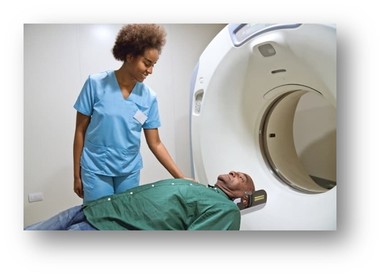To ensure you’re receiving the most up-to-date and accurate information, please choose the correct agency from the homepage. The DHEC website is no longer being updated and will be permanently unavailable Dec. 31, 2024.
Who Should Be Screened?

The U.S. Preventive Services Task Force (USPSTF) yearly lung cancer screening with LDCT for people who—
- Have a 20 pack-year or more smoking history, and
- Smoke now or have quit within the past 15 years, and
- Are between 50 and 80 years old.
A pack-year is smoking an average of one pack of cigarettes per day for one year. For example, a person could have a 20 pack-year history by smoking one pack a day for 20 years or two packs a day for 10 years.
Find a local lung cancer screening center near you!
Get free quit support from the SC Tobacco Quitline (1-800-QUIT-NOW)
Risks of Screening
Lung cancer screening has at least three risks:
- A lung cancer screening test can suggest that a person has lung cancer when no cancer is present. This is called a false-positive result. False-positive results can lead to follow-up tests and surgeries that are not needed and may have more risks.
- A lung cancer screening test can find cases of cancer that may never have caused a problem for the patient. This is called overdiagnosis. Overdiagnosis can lead to treatment that is not needed.
- Radiation from repeated LDCT tests can cause cancer in otherwise healthy people.
That is why lung cancer screening is recommended only for adults who are at high risk for developing the disease because of their smoking history and age, and who do not have a health problem that substantially limits their life expectancy or their ability or willingness to have lung surgery, if needed.
If you are thinking about getting screened, talk to your doctor. If lung cancer screening is right for you, your doctor can refer you to a high-quality screening facility.
The best way to reduce your risk of lung cancer is to not smoke and to avoid secondhand smoke. Lung cancer screening is not a substitute for quitting smoking.
